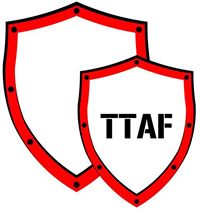
Offset agreements are commitments by an exporter to a reciprocal purchase obligation. The reciprocal purchase is generally related to the exported product. The defense industry defines an offset as an industrial compensation practice required as a condition of purchase, in either government-to-government or commercial sales of defense articles or defense services as specified by the International Traffic in Arms Regulations (ITAR). Offsets are often comprised of component purchases, technology transfers, investments, training and research programs, and counter purchases. International trade, especially involving military equipment, advanced technology or high value contracts, frequently requires an offset agreement. An exporter's incorporation of offsets into export trade agreements is an integral aspect of the global competitive landscape. Exporters have benefited in procuring contract awards from the early performance of offset arrangements. Exporters may receive extra credits for conducting a specific offset transaction, such as a technology transfer, or a joint-venture.
Direct Offsets: Contractual arrangements that involve defense articles and services referenced in the sales agreement for military exports.
Indirect Offsets: Contractual arrangements that involve goods and services unrelated to the exports referenced in the sales agreement.
Co-production: Overseas production based upon a government-to-government agreement that permits a foreign government(s) or producer(s) to acquire the technical information to manufacture all or part of a U.S. origin defense article. Co-production includes government-to-government licensed production, but it excludes licensed production based upon arrangements with U.S. manufacturers.
Licensed Production: Overseas production of a U.S. origin defense article based upon the transfer of technical information under the direct arrangements between a U.S. manufacturer and a foreign government or producer.
Subcontractor Production: Overseas production of a part or component of a U.S. origin defense article. The subcontract does not necessarily involve license of technical information and is usually a direct arrangement between the U.S. manufacturer and a foreign producer.
Overseas Investment: Investment arising from the offset agreement, taking the form of capital invested to establish or expand a subsidiary, or joint venture, in the foreign country.
Technology Transfer: Transfer of technology that occurs as a result of an offset agreement and that may take the form of research and development conducted abroad, technical assistance provided to the subsidiary, or other arrangements between the U.S. manufacturer and a foreign entity.
Countertrade: In addition to the offsets defined above, various types of commercial counter trade arrangements may also be required. A contract may include one or more of the following mechanisms:
Barter - A transaction bound under a single contract that specifies the exchange of selected goods or services for another of equivalent value.
Counter-purchase - An agreement by the initial exporter to buy (or to find a buyer for) a specific value of goods (often stated as a percentage of the value of the original export) from the original importer during a specified time.
Compensation (or Buy-Back) - An agreement by the exporter to accept products derived from the original export as payment.



